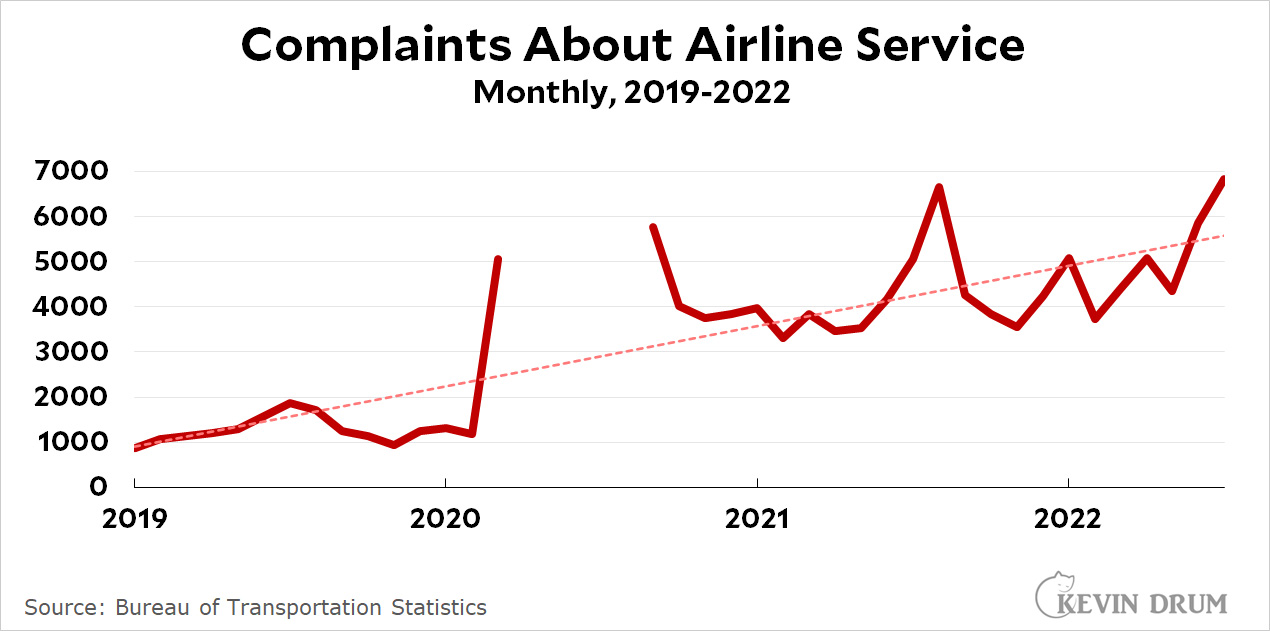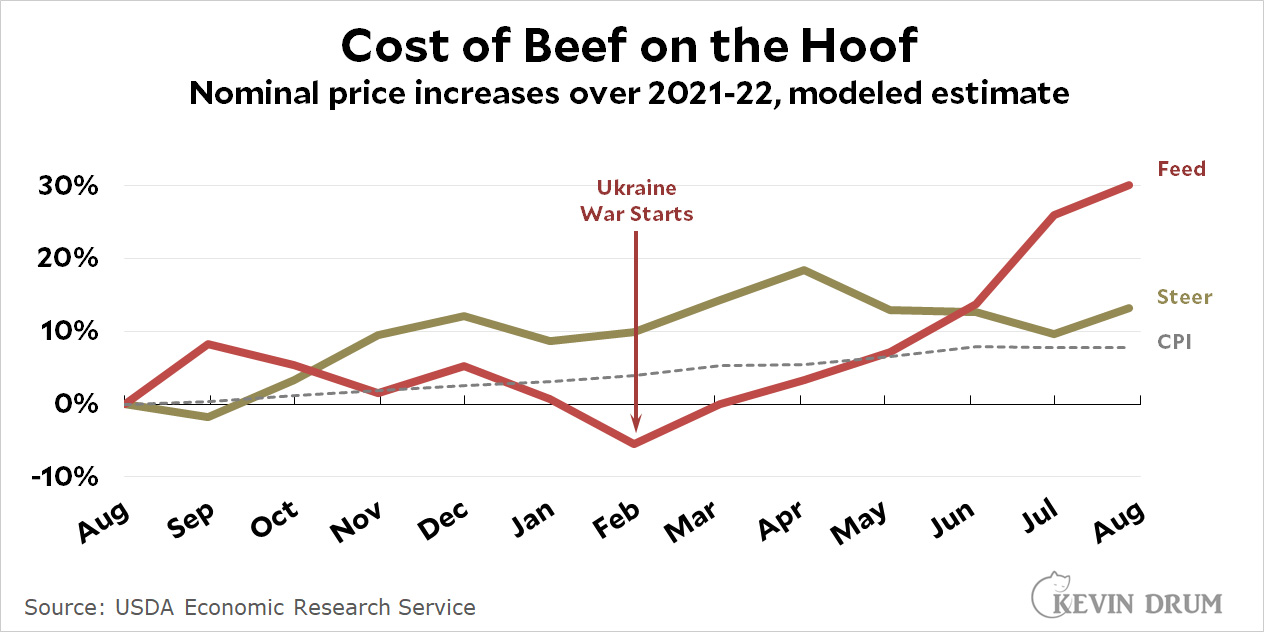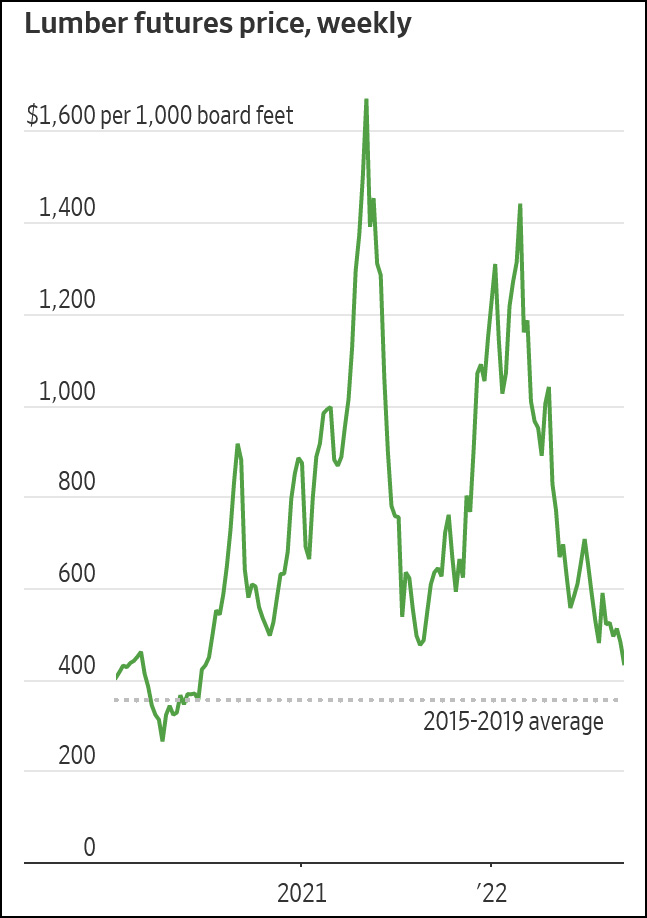"What happened to monkeypox?" asks the Washington Post. Here's the answer in the US:
 This is why you hardly hear about monkeypox anymore. It peaked in mid-August and it's been fading away ever since. Right now the infection rate has fallen by more than half from its peak, and in the entire time since June only one person has died from monkeypox (a man who was already severely immunocompromised by HIV).
This is why you hardly hear about monkeypox anymore. It peaked in mid-August and it's been fading away ever since. Right now the infection rate has fallen by more than half from its peak, and in the entire time since June only one person has died from monkeypox (a man who was already severely immunocompromised by HIV).
Part of me wants to say I told you so. Things worked out OK and now the disease is ebbing away. There was no need for panic.
And that's true. On the other hand, although most European countries peaked the same way we did (but earlier), they've since declined far faster than us. Compared to our daily infection rate of 200 per million residents, most European countries have infection rates between 0-50 infections per million residents.
This is not because they had bigger supplies of the vaccine than us. They didn't. We've administered about 800,000 doses (in a population of 330 million) while Europe has administered 330,000 doses (in a population of 450 million). In other words, our vaccination rate is more than 3x their rate.
So even though we're doing OK, I would really like to know why most European countries apparently handled things so much better even though their outbreak was just as bad. It might be a reporting issue. Or it might be a timing issue and we just have to wait a few weeks to get to the European level. I'm not sure and I haven't been able to find a good discussion of all this.







